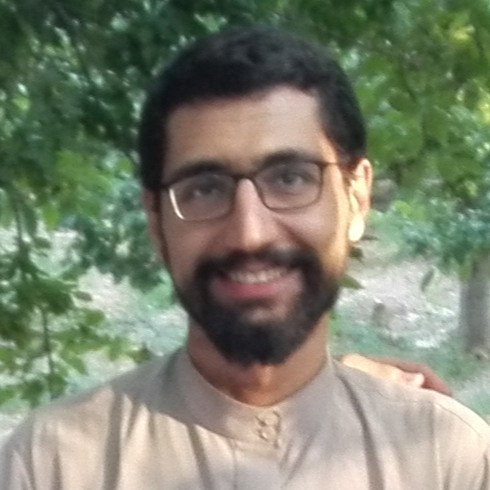Sharia Compliant
A User’s Guide to Hacking Islamic Law
By: Rumee Ahmed
Stanford University Press 2018
This project originated with a research grant from the University of British Columbia and was subsequently developed and brought to fruition during a one-year fellowship at the Stanford Humanities Center. The overarching premise of the work is that we, as Muslims, acknowledge that we have significant internal challenges. Traditional scholars (ulema) insist that our problems stem from failing to adhere to the Sharīʿa—their particular understanding of the Sharīʿa. Yet the argument advanced here is that the primary problem lies with these very scholars and the monopolization of the Sharīʿa that they have produced. What, then, is the solution? It is to “hack” the Sharīʿa. This is the central idea of the project.
The study then proceeds, in several substantial chapters, to explain why, how, where, and by whom this “hacking” occurs. It begins by arguing that the Sharīʿa has never possessed a single, fixed essence, nor was it ever intended to do so. Rather, the Sharīʿa is inherently fluid—multiplying across time and manifesting in as many forms as there are Muslims. The unification of the Sharīʿa into a single standardized entity was a product of the colonial period. Colonial administrators, in their efforts to govern and regulate subject populations, were compelled to homogenize local legal systems. In this process, “state-sponsored scholars” were created—figures tasked with promoting one authoritative interpretation of the Sharīʿa as the standardized and normative version. Thus, the contemporary image of the Sharīʿa as a singular truth is, in fact, a colonial artifact.
In contrast, in the pre-colonial period, the Sharīʿa existed as a plural and dynamic phenomenon. What, then, was the role of scholars in that earlier era? They had developed a technical and specialized system—a language and methodology—for “hacking” the Sharīʿa, known as fiqh. Their task was to ensure that the Sharīʿa remained responsive to changing temporal and spatial conditions while maintaining its historical continuity. For the Sharīʿa to function effectively, it must be simultaneously rooted in its historical tradition and attuned to contemporary needs. In the pre-colonial period, fiqh fulfilled precisely this function, enabling scholars to “hack” the Sharīʿa in ways that adapted it to the lived realities of diverse Muslim communities.
In a separate chapter, the author launches carefully crafted attack against the ʿulamāʾ, a critique whose satirical undertone is unmistakable. He portrays them as a self-absorbed group, profoundly isolated from reality, who imagine themselves to be God’s representatives on earth. They seek to monopolize all religious authority and preserve all interpretive power within their own hands. Yet their position is steadily weakening. In their place, a new generation of cosmopolitan scholars is emerging—individuals with broad historical knowledge, international experience, familiarity with multiple languages, and active engagement on social media. These are the figures who, he argues, will lead the modern-era “hacking” of the Sharīʿa. They are the true heirs of the authentic pre-colonial scholars—figures such as al-Ghazālī—equally intelligent and equally effective.
Another chapter explains why the Sharīʿa must be hacked rather than merely “patched.” Patching—in other words, making ad hoc adjustments through doctrines such as secondary rulings, conflict of obligations, or considerations of necessity—attempts to resolve conflicts between the Sharīʿa and contemporary conditions on a case-by-case basis. Such piecemeal repairs, however, are ineffective. State-aligned scholars often resort to this approach when they wish to keep the Sharīʿa functional, but it is ultimately insufficient. What is needed, the author argues, is a fundamental intervention: the Sharīʿa must be hacked.
The book describes both a social process and a scholarly process of hacking. The social process begins when Muslim communities concerned with fiqh (labeled by author as ‘fiqh-minded Muslim’) recognize a deficiency. For example, they may observe that flogging an adult who has acted according to natural human instincts appears inconsistent with justice, or that criminalizing or suppressing homosexuals simply for their orientation is unjust. The community then turns to state-sponsored scholars, who, lacking any real understanding of the problem, simply repeat their conventional positions. As a result, internal community groups become activated. The most influential among them are online hackers.
In online forums, these hackers raise such issues and seek justifications drawn from pre-colonial fiqh. With access to classical legal sources, and through discussion and exchange, they craft a technical, jurisprudential formulation that resolves the problem. They then present this formulation to the Muslim community, which in turn brings it back to the state-sponsored scholars—who, cornered and unable to respond effectively, eventually concede. The cycle then repeats. A decade ago, online hackers were debating the recognition of homosexuality as an orientation and constructing technical jurisprudential arguments to support this view; today we hear that even state-aligned scholars have begun to retreat from their earlier positions, sometimes even adopting the arguments already formulated. At present, online hackers are working to construct a jurisprudential rationale for same-sex marriage, and in a few years, the state-aligned scholars will likely be compelled to accept this as well.
This is the social cycle of Sharīʿa hacking: the recognition of a need by fiqh-minded Muslim communities; the activation of online hackers who construct a technical jurisprudential solution; the retreat of state-affiliated scholars; and, finally, the institutionalization of the proposed hack.
What does “hacking” mean in this context? It refers to the process by which, when a system no longer operates effectively, one introduces minimal adjustments to its components in order to produce maximal improvement and functionality. This system, however, was disrupted by colonialism, which dislocated the traditional role of scholars and destabilized the entire framework.
What, then, is the technical process of hacking? One begins by proposing the desired ruling. Next, one traces the network of related rulings—for the Sharīʿa is an interwoven system in which every subject typically connects to several others. Then, using the technical language of pre-colonial fiqh, one redefines these related rulings in order to construct a new, coherent jurisprudential narrative. After that, one returns to the sources and reinterprets the relevant textual passages in light of this newly constructed narrative.
The example the author presents as his own successful achievement in hacking concerns the punishment of the zānī (the fornicator). Contemporary Muslims, he argues, cannot accept that a government would seek to penalize two consenting, sane adults who have acted according to innate human instincts. The traditional punishments mentioned in pre-colonial texts—flogging or stoning—are, in his view, difficult to “hack.” The procedure he proposes begins by rejecting stoning due to allegedly weak evidentiary support; he then argues that the Qur’anic term zinā in fact refers to rape. Muslims, he notes, have no objection to punishing a rapist; indeed, they affirm it. Thus, the central issue becomes consent. By redefining zānī as “rapist,” the problem is resolved. That, in short, is the author’s major discovery—a Stanford fellow’s breakthrough in a research project supported by two major universities.
Throughout the work, he rigidly and consistently employs labels of his own invention: “Fiqh-minded Muslims,” since he believes that most Muslims lack any concern for fiqh; “state-sponsored ʿulamāʾ,” by which he means all traditional scholars; “pre-colonial sources,” referring to the entire corpus of classical Islamic jurisprudence; and others of this sort. These labels significantly contribute to the book’s polemical and, at times, toxic atmosphere. There are numerous points of criticism. I have briefly discussed some of them in English in a joint podcast series. The extent of the twisted claims—almost in every chapter, if not on every page—is astonishing. Let me offer just one observation here: a proper critique of this book would require adopting similarly pointed labels. One could, for example, describe the author as a representative of a new generation of writers supported by neo-colonial institutions, intellectually nourished by Western foundations, and so forth—so that he might appreciate the difference between serious scholarship and simplistic label-making. It is strange that such a patchwork of baseless assertions is being praised as a scholarly contribution by a university professor. After 250 pages of conflating ideas and spinning speculative narratives, the culmination of his argument is the claim that the true meaning of zinā is rape—without a single linguistic or historical indication to support it. So this, apparently, is what Western Islamic studies has become.
In a YouTube talk related to the book, he recounts having gone to a traditional seminary to study. “I wanted to learn the Qur’an,” he says. “They told me, ‘First study fiqh, or you will go astray.’ I devoted years of my life to fiqh. When I finished, I said, ‘Now the Qur’an?’ They told me, ‘We no longer have teachers qualified to instruct you at your level.’ I left discouraged. These seminaries monopolize everything—their fiqh, their knowledge. This monopoly must be broken.” Such is his narrative.
In summary, this is the project: supported by a grant from the University of British Columbia and a fellowship at Stanford, driven by an undercurrent of satire and persistent label-making, and culminating in the grand theoretical innovation of redefining zinā as rape. The goal, ostensibly, is to dismantle the monopoly of “state-sponsored scholars” and replace it with the research projects of this sort and this origin.









